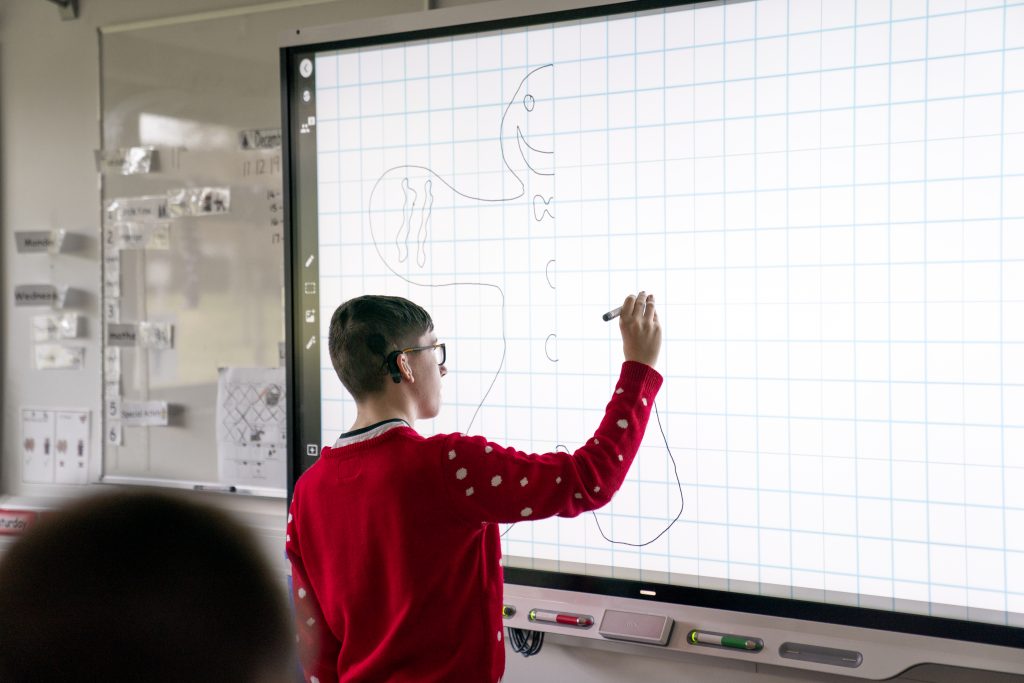The language of neurodiversity
For those new to the subject of Neurodiversity, it might be tricky to know what are the right words to use when talking about the subject. That’s understandable – it’s a broad topic that covers a lot including autism spectrum conditions, social anxiety, dyspraxia and dyslexia (to name just a few). A certain sensitivity is needed when talking about neurodiversity too. Using incorrect terminology can spread misinformation and skewed views of neurodivergent individuals and also lead to further alienation for those concerned. Here at The Donaldson Trust our mission is to help young people find their voice – and that’s exactly why we put together this blog. To help sow a better understanding of neurodiversity and normalise the right way of talking about it.

‘Neurodiverse’ or ‘neurodivergent’?
This is a fairly easy one. When talking about an individual, you’d use the term neurodivergent. Grammatically speaking, diversity is a property of groups, not one person. So on a purely linguistic level to refer to someone as neurodiverse is incorrect. Of course there’s also a deeper meaning to us pointing this out. We need to be cautious when using ‘neurodiverse’ to describe those who operate out-with the so-called ‘majority’ or ‘mainstream’ of neurotypical people. Neurodiversity actually refers to the diversity of human minds, the infinite variations of neurocognitive functioning within the human race as a whole. What this means is that technically everyone is neurodiverse so there’s no need to create an us/them type differentiation. What we need to avoid is ‘Neurodiverse’ being used as another way of saying “you’re different from me, the neurotypical person”. Really it’s meant to mean “we are different from each other”. It’s really a vehicle that enables us to talk about more focussed terminology. A seemingly subtle yet crucial difference.
“Special needs”
Perhaps once coined as a well-meaning term to try to undermine stigma and prejudice, “special needs” unfortunately become more of a slur. We prefer neurodiversity/neurodivergent as it’s a concept that was invented within the community it describes. As mentioned above, it defines but doesn’t differentiate. Depending on your age “special needs” might be used completely innocently, however it’s a term that’s now run its course as we’ve learned more about neurodiversity in general.
Acronyms
This section is less of a do/don’t and more of a ‘watch out’. Normally used to convey a rather long-winded, or commonly used definition, acronyms can often throw up a barrier to those not ‘in the know’. As Professor Amanda Kirby writes, “Growing levels of embarrassment happen when you are concerned you may be considered ignorant and leads to avoidance in asking.”
Acronyms are a fact of life in our field. However, here at The Donaldson Trust we don’t want to make anyone feel on the outside. If you hear an acronym you don’t know, it’s important to ask what it means. Getting a good understanding of neurodiversity is half (or at least a sizeable part of) the battle! Professor Kirby goes on to illustrate just how complex these acronyms can get;
“Education often uses the term SpLD (Specific Learning Difficulties). This term usually includes Dyslexia, Dyscalculia, and Dyspraxia under the umbrella. Ironically, the term Dyspraxia is used for co-ordination difficulties when the international term is Developmental Coordination Disorder, which is usually used by health care professionals. We hear the term SEN or Special Educational Needs (The term SEN covers a wide range of needs. These include behavioural, emotional, and social difficulties, speech, language and communication, hearing impairment, visual impairment, multi-sensory impairment, physical disability, and autism) and in Wales, the term ALN is used standing for Additional Learning Needs is used instead. One definition for this term is ‘Additional Learning Needs (ALN) can take a wide variety of forms and can relate to one or more different areas of learning, such as communication and cognition.”
Mindfulness is appreciated
These are just a few things to be mindful of when speaking or writing around the topic of neurodiversity. We hope you found this article helpful!